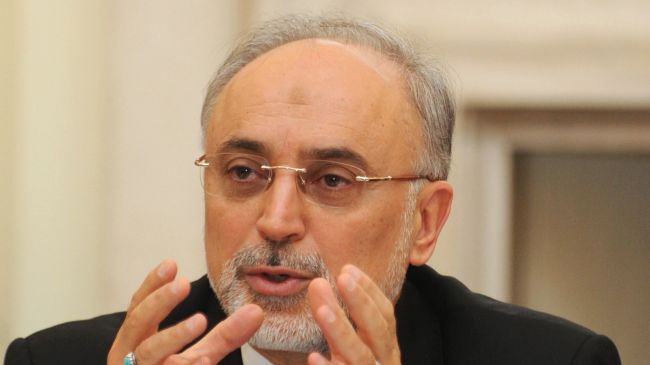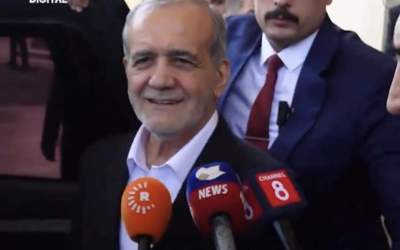 TEHRAN (FNA)- Head of the Atomic Energy Organization of Iran (AEOI) Ali Akbar Salehi called on the country's security forces to be watchful of possible terrorist attacks on the country's nuclear centers, and said several such acts of sabotage have been defused and a number of spies have been arrested in the last few days.
TEHRAN (FNA)- Head of the Atomic Energy Organization of Iran (AEOI) Ali Akbar Salehi called on the country's security forces to be watchful of possible terrorist attacks on the country's nuclear centers, and said several such acts of sabotage have been defused and a number of spies have been arrested in the last few days."I urge the security forces to watch the country's borders vigilantly since there is a possibility of acts of sabotage in the country," Salehi said in Tehran on Sunday.
He said that the Iranian security forces have foiled several plots against the country's nuclear installations in recent days, and said, "The enemy always seeks to strike a blow at the country's nuclear installations and therefore, the AEOI's guard units bear a highly heavy responsibility."
Salehi also announced the identification and arrest of four spies in the AEOI in recent days, and said they are being interrogated now and the details of the case will be announced later.
Iran has repeatedly complained of the enemies' hostile efforts against its civilian nuclear program. Tehran says the enemies' campaign includes the abduction of scientists, the sale of faulty equipment and the planting of destructive computer worms, including Stuxnet, which sought to disrupt Iran's uranium enrichment activity in 2010.
Former Iranian nuclear chief Fereidoun Abbasi announced in 2012 that separate attacks on Iran's centrifuges - through tiny explosives meant to disable key parts of the machines - were discovered before the blasts could go off on timers.
Abbasi also told the UN nuclear agency in Vienna that "terrorists and saboteurs" might have infiltrated the International Atomic Energy Agency, after the watchdog's inspectors arrived at the Fordo underground enrichment facility shortly after power lines were blown up through sabotage on August 17, 2012.
Iran has several times complained that the IAEA is sending spies in the guise of inspectors to collect information about its nuclear activities, pointing to leaks of information by inspectors to US and other officials.
Five nuclear scientists and researchers have been killed in Iran since 2010. All the Iranian scientists have been assassinated by Israel's Mossad spy agency as well as the CIA and Britain's MI-6, according to Iranian intelligence ministry.
Over the past few years Iran has been the target of numerous cyber attacks carried out to disrupt the country's industrial systems, but Iranian experts have managed to find and defuse such highly dangerous plots.
In May 2012, Iran announced that its cyber experts detected and contained a complicated Israeli spy virus known as "Flame".
The head of Information Technology Organization of Iran, Ali Hakim Javadi, said earlier that the country's experts had managed to produce anti-virus software that could spot and remove the detected computer virus "Flame".
Javadi said that the indigenous anti-virus software had been capable of detecting the virus and cleaning up the infected computers.
He said that the malware was different from other viruses and was more destructive than Stuxnet.
On April 24, 2012, an Iranian oil official said the country's experts had contained cyber attacks against the country's Oil Ministry.
Hamdollah Mohammadnejad, deputy minister in engineering affairs, said "Recently, a few number of National Iranian Oil Company (NIOC) servers were attacked by a malware, but the cyber security experts of oil industry contained it immediately."
In October 2010, former Iranian Intelligence Minister Heidar Moslehi announced that Iran had detected and thwarted a virus aimed at infecting the country's nuclear plant system.
Iran said the computer worm, Stuxnet, had infected some IP addresses in Iran, including the personal computers of the staff at the country's first nuclear power plant in Bushehr. Tehran said Israel and the US were behind the infection of its industrial sites.
By Fars News Agency
The Iran Project is not responsible for the content of quoted articles.










